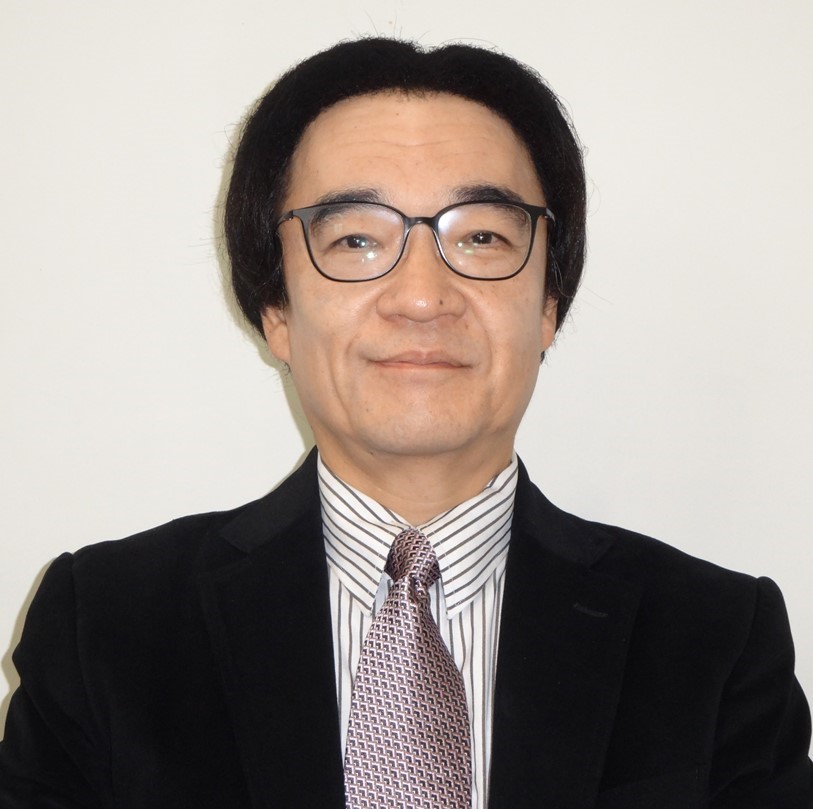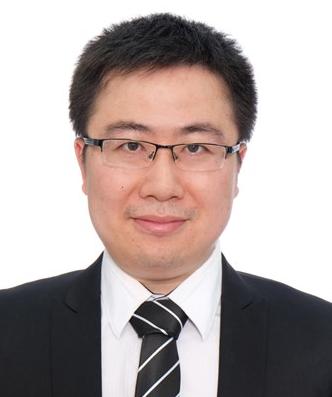Hiroshi Mizuta
Professor, Japan Advanced Institute of Science and Technology, JapanUniversity of Southampton, UK
Speech Title: Graphene NEMS Technology for Extreme Sensing and Nanoscale Thermal Engineering
Abstract: An overview is presented for our recent study of graphene nanodevices for various challenging applications. Graphene nano-electro-mechanical (GNEM) device technology is first presented for low-power switching and ultra-sensitive chemical gas sensing applications. Three-terminal GNEM switches with heterogeneously stacked graphene / h-BN layers are developed, which achieve low-voltage and sub-thermal switching (S < 60 mV/dec). We then present nanoscale graphene chemical sensors, which detect either resistance or mass changes due to a small number of gas molecules physisorbed onto suspended graphene at room temperature. With the resistance detection method, we show quantized increments in the temporal resistance, signifying individual CO2 molecule adsorption. As for the mass detection method, we demonstrate the resonance frequency shift of a doubly-clamped graphene resonator with the mass resolution of hundreds zeotpgram order. After that, state-of-the-art single-nanometer patterning technology of suspended graphene by using helium ion microscope (HIM) is introduced for nanoscale thermal engineering. The graphene nanomesh (GNM) structures with sub-10-nm pore diameter are patterned on large-area suspended graphene. A new Differential Thermal Leakage method is introduced to evaluate heat phonon transport in the asymmetric GNM channels. Remarkable thermal rectification is presented with the rectification ratio of over 80 % at 150 K and 60 % at 250 K along with preliminary discussion on physical mechanism behind the rectification phenomena.
Biography: Hiroshi Mizuta CPhys FInstP FJSAP, received the Ph.D. degree in electrical engineering from Osaka University, Japan, in 1993. He was the Laboratory Manager at the Hitachi Cambridge Laboratory, Cambridge, UK for 1997 – 2003. He was Associate Professor at Tokyo Institute of Technology for 2003 - 2007 and Professor of Nanoelectronics at University of Southampton for 2007 – 2016 (as part-time for 2011-2016) and served as Head of the NANO Group from 2009 - 2011. He is currently Distinguished Professor and Vice President (Special Missions) at Japan Advanced Institute of Science and Technology (JAIST) and Visiting Professor, School of Electronics and Computer Science, University of Southampton.
He has a strong track record in the research on silicon- and graphene-based nanoelectronic devices and nano-electro-mechanical-systems (NEMS). He has led a number of large research projects in the UK and Japan. He was awarded for 2018 Commendation for Science and Technology by the Ministry of Education, Culture, Sports, Science and Technology (MEXT), Japan for his research achievements on ‘Hybrid Electro-Mechanical Functional Devices at Nanoscale’. He has published over 620 peer-reviewed scientific papers and filed over 55 patents. He has also authored books and chapters, including “Physics and Applications of Resonant Tunnelling Diodes”, Cambridge University Press. Professor Mizuta is Fellow of the Japan Society of Applied Physics, Fellow of the Institute of Physics (IOP). For 2002-2016, he also served as a member of the International Advisory Board of the MacDiarmid Institute for Advanced Materials and Nanotechnology, New Zealand Centres of Research Excellences (CoREs).
Guoxing Sun
Associate Professor, Institute of Applied Physics and Materials EngineeringDirector of the Advanced Materials R&D Centre, Zhuhai UM Science & Technology Research Institute
University of Macau, China
Speech Title: Application of Polymer Nanocomposite in Construction Materials
Abstract: The speaker will use two examples of industrialized technology inventions to describe how to effectively combine and apply the two different disciplines of material chemistry and civil engineering, and talk about the stories of commercializing the research products. (1) Mixing cement with ice water to mass produce nanoparticles (size <5 nm), which could be used to prepare a series of hydrogels with super elasticity, adsorption and water swelling properties, applied in electronics, biological materials, agriculture, and civil engineering. (2) Low-cost, nanoparticle-stabilized foam that can keep stable for years, which could be used to mix with cement paste to prepare lightweight, high-strength, fire-resistant and thermally insulated foam concrete. The “nano-foam concrete” has been widely used in prefabricated building materials and cast-in-place construction projects.
Biography: Prof. Guoxing SUN received his Ph.D. degree in civil engineering from The Hongkong University of Science and Technology in 2015, and then worked for Nano and Advanced Materials Institute (NAMI), Hongkong. In 2017, he joined University of Macau, where he developed his career starting from assistant professor to associate professor, and was responsible for the industrialization of the new materials. He has conducted 20+ research grants of more than 4 million USD, and led a research group of more than 50 PhD students and Postdoctoral fellows, some of whom have been full professors in well-recognized universities.
Prof. Sun’s research focuses on polymer nanocomposites and construction materials. He discovered a simple way for mass producing 5 nanometer particles by just using normal cement and ice water, and designed a series of high-performance polymer nanocomposite hydrogels enhanced by these cement-released nanoparticles. In 2024, the research work was personally awarded the First-Class Prize in Technological Invention by Mr. Sam Hou Fai, Chief Executive of the Macao SAR.
Contributed to industrialization, Prof. Sun invented a nanoparticle-stabilized foam, which can be simply mixed with cement slurry to fabricate strong light-weight foam concrete. The nano-foam concrete can be 2-5 times stronger or 40% lighter than the relevant market products. It has been widely used and saved 15-40% of cement usage in various construction projects of 15 cities all around the world, such as the largest land port of China, Zhuhai-Macao Hengqin Port Comprehensive Transportation Hub, and Macau Cross-Sea Bridge.
Prof. Sun was reported by China Central Television (CCTV-1, CCTV-4 and CCTV-13) for several times. He is also the recipient of the China National Excellent Young Scientists Fund (2021), Macau Science and Technology Award (2024 and 2022), Building Science and Technology Award issued by China Building Materials Federation (2018). He published over 150 papers in referred journals with total cited times over 7000, and was recognized as World’s Top 2% Scientists in the past two years.
Boris Mahltig
Professor, Faculty of Textile and Clothing Technology, Hochschule Niederrhein, GermanySpeech Title: Adhesion between 3D Printed Thermoplastic Objects and Textile Materials
Abstract: 3D-printing technology offers the chance to functionalize textiles in the third dimension. Possible applications can be printed buttons and locking systems, which are related to traditional fashion applications. Also, elements for mechanical protection can be printed on textile, e.g. for realization of protective sport clothing or for the defence sector. Finally, elements for decorative and design purposes can be realized by 3D-printing on textile, this is especially attractive due to the possible customer individualization. Crucial for such functional applications is the stability of the printed object onto the textile substrate, meaning it is absolutely necessary to guarantee a good rubbing and washing stability. The actual presentation describes a variation of parameters which are able to optimize the fixation of a 3D-printed object. These parameters are the chemical nature of the fiber, chemical pre-treatment of the substrate, the textile roughness and a plasma treatment. Different kind of textile materials as cotton, nylon and polyester are investigated. As chemical pre-treatments simple washing processes but also application of precursors can be used. Additionally, to the textile properties, also the parameters of printing process, as printing speed and temperature, are investigated. To evaluate the quality of 3D-prints onto textiles several testing procedures are developed specially to determine the adhesion force between the 3D-object and the textile substrate. Results of different washing- and abrasion procedures are presented. Altogether it can be concluded that the presented technique has a high potential to realize new, innovative and especially individualized textile products.
Keywords: Textile functionalization, 3D printing, Nylon, PLA, woven and knitted fabrics.
Acknowledgements: Many thanks are owed to four of our excellent bachelor and master students - Maryna Gorlachova, Dan Luo, Anja Huber and Julia Bergschneider, who are working on the field of 3D printing on textile substrates during the last years. For long-term cooperation, the author owes many thanks to Prof. Dr. Yordan Kyosev (TU-Dresden, Germany).
Biography: Prof. Boris Mahltig, studied chemistry at the University of Bremen (Germany) and finally received the PhD at the university TU Dresden (Germany) in the field of polymers and surfaces. After several years working as project leader in the field of coatings & functionalization, he joined the Hochschule Niederrhein in 2011 as a full professor with the denomination “Functionalization of Textiles”. With more than 100 publications and more than 10 patent applications, he contributes to several different fields of science, such as sol-gel technology, textile functionalization, UV protection, 3D printing, optical modification, functional pigments and high-performance fibers.
More Speakers will be updated…




